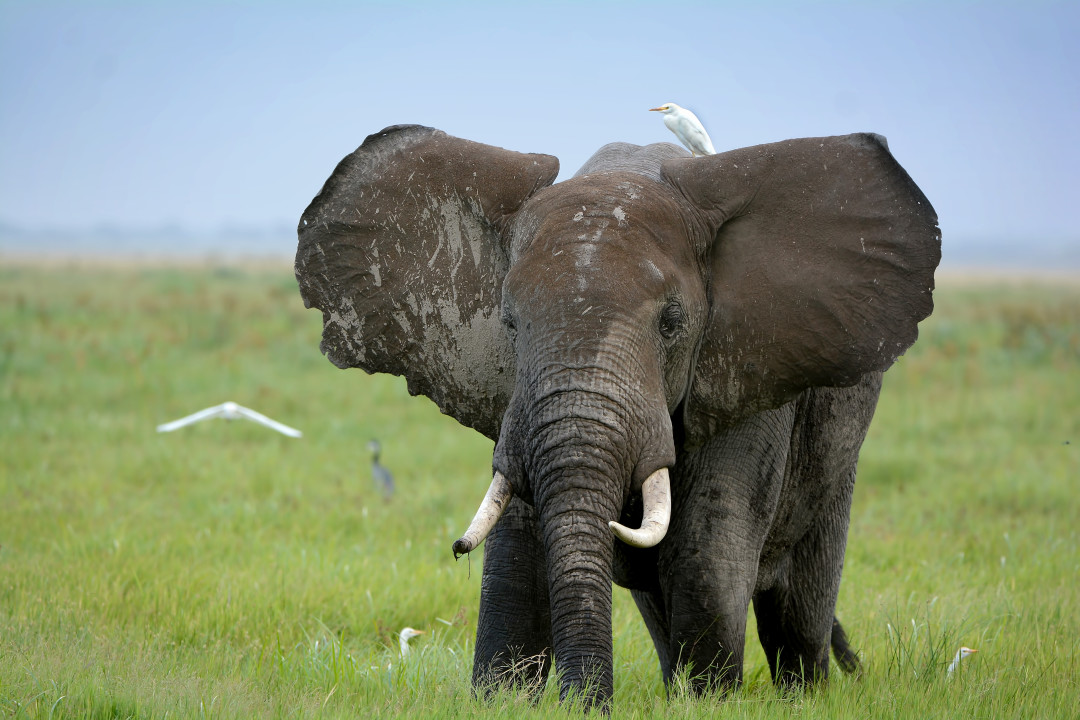Our Mission
The African Wildlife Foundation (AWF) is an international non-governmental organization dedicated to wildlife conservation in Africa. Established in 1961, AWF has been Africa's conservation organization and is uniquely positioned to promote conservation of wildlife and wild lands in a modern Africa. We work with people - our supporters worldwide and our partners in Africa - to craft and deliver creative solutions for the long-term well-being of Africa's remarkable species, their habitats, and the people who depend upon them. Today, AWF is the only global conservation organization that implements Africa-led strategies and programs.
Donate Now
Our Impact
almost 7 years ago — Africa

Where previously poachers were subsistence or small-scale operators, now, organized groups engage in ruthless killing sprees. Poaching in Africa today involves militias, crime networks, and even terrorist groups motivated by the demand for ivory and rhino horn in Asian countries predominantly. The illegal killing of wildlife is more efficient than ever before — the syndicates equip poachers with gear such as military-grade weapons, helicopters, and night-vision goggles. In one of the worst events on record, armed poachers on horseback in Cameroon’s Bouba N’djida National Park slaughtered as many as 650 elephants over three months in early 2012. African Wildlife Foundation responded to the poaching crisis by directing resources to the protection of priority wildlife populations across Africa, to ensure funds went where most needed. By partnering with authorities, NGOs, and the private sector already on the ground, we were able to quickly mobilize resources and address critical threats in real time to prevent further loss of wildlife. AWF’s three-pronged strategy — Stop the Killing, Stop the Trafficking, and Stop the Demand — fights poaching from every angle. Direct species protection work includes training and equipping rangers, community scouts, and eco-guards to monitor and protect elephant and rhino populations, deploying dog-and-handler units to track down poachers, helping governments manage protected areas, and conducting wildlife censuses. Results have been heartening. Among the 11 rhino populations AWF supports, all are stable or increasing; among 14 elephant populations, 11 are stable or increasing. In Kenya’s 50,000-sq.-kilometer Tsavo-Mkomazi ecosystem, the elephant population grew by 14 percent between 2014 and 2017. On average, elephant poaching has declined consistently in the last three years, though there are regional differences across the continent. In the southern landscapes where AWF works, elephant populations are increasing. As for rhinos overall, although there is good news in some areas where poaching dropped in 2017, there were sharp poaching increases in other areas. In all, South Africa, which holds about three-quarters of the African rhino population, had 1‚028 rhino poached in 2017. Poaching remains a critical threat to Africa’s wildlife, but on-the-ground efforts including AWF species protection programs are invaluable in the fight to stop the killing. AWF’s proven efforts and a holistic approach to conservation are more critical than ever before.